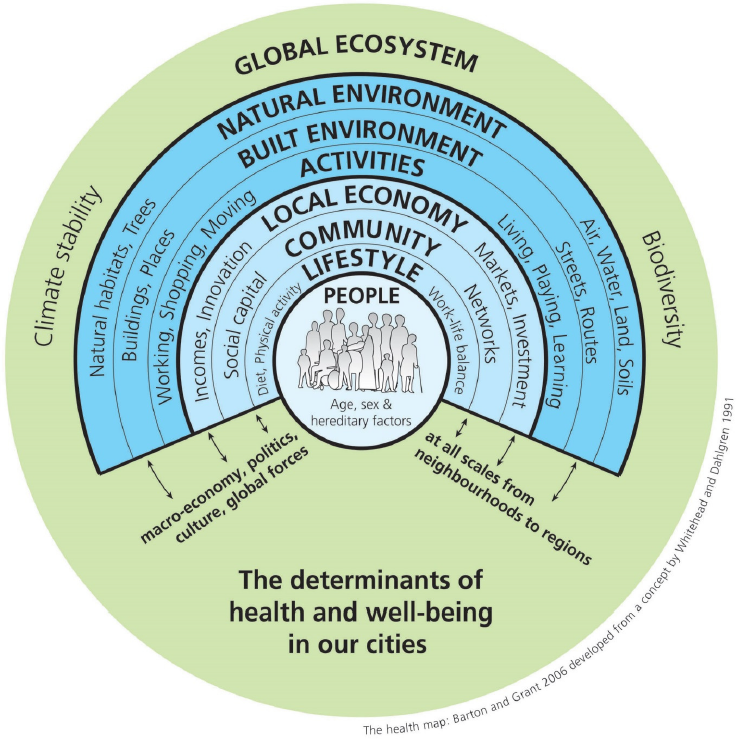Everything affects our health and wellbeing. There are factors that cannot be changed such as age, gender and hereditary factors. However, lifestyle and behaviour, the local community, economy, and environment all influence health and wellbeing.

Two key influential factors on health and wellbeing are having good quality education and employment. Being in good work is better for your health than being out of work. ‘Good work’ is defined as having a safe and secure job with good working hours and conditions, supportive management and opportunities for training and development. There is clear evidence that good work improves health and wellbeing across people’s lives and protects against social exclusion. Conversely, unemployment is bad for health and wellbeing, as it is associated with an increased risk of mortality and morbidity. Unemployment and being in poor quality employment can have a profound affect on children and young people growing up in these households. Poverty and deprivation which result have a huge effect on everybody affected. However, they can also have an impact their social norm, motivation, life expectations and ultimately on their education.
Good education improves career prospects, raises aspirations, and gives people more financial control over their lives. Poor education and training, and low educational attainment can affect confidence, aspirations, and increase the risk of lifelong unemployment, benefit dependency or low paid employment. These factors have a strong influence on health and wellbeing. Children (and adults) with low confidence and aspirations, and with low educational attainment are more likely to make poor choices in their lives, are less likely to achieve well-paid satisfying regular employment, have poor resilience, and increase the likelihood of poor health and wellbeing.
Children and young people have limited ability to influence their circumstances to improve their health and wellbeing so the focus must be on families and crucially giving children the best start in life. Children and young people can mimic parental behaviour, and poor life choices, poor parenting, mental health problems and domestic abuse can result in cyclic behaviour from generation to generation if it is not addressed.
Further information relating to external factors which affect health such as Deprivation and Poverty, Housing, Environment Factors, Educati0n and Qualifications, Employment, Economy and Healthy Workplaces, and Financial Resilience are given for Hull. Lifestyle and behavioural factors which influence health are examined within Adults and within Children and Young People.